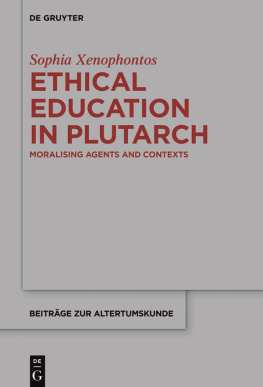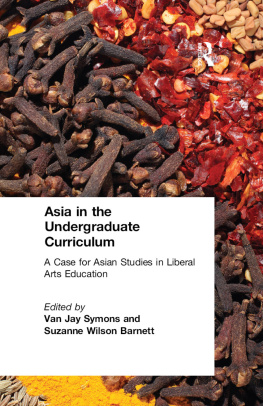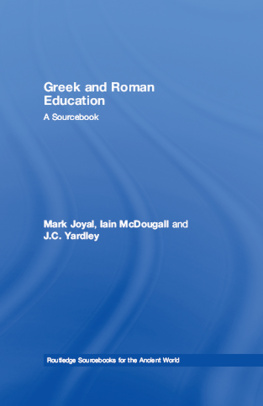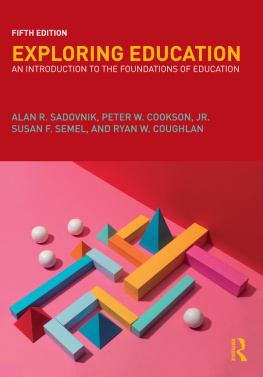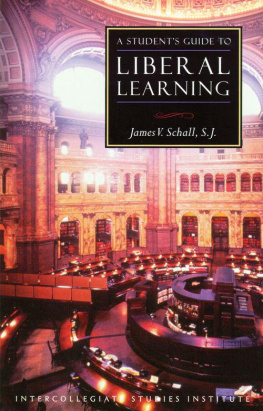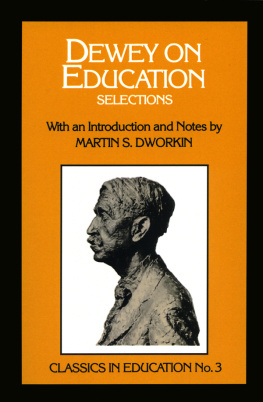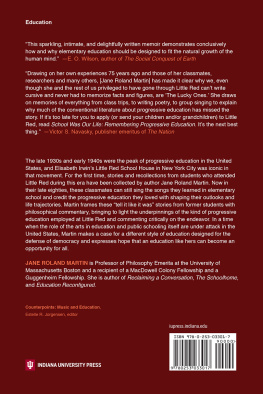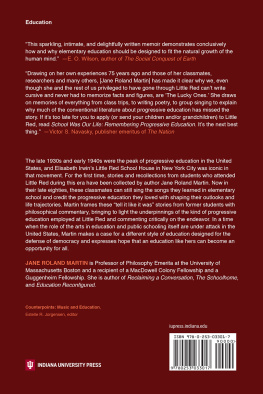The School of Rome
The publisher gratefully acknowledges the generous
support of the Classical Literature Endowment Fund
of the University of California Press Foundation.
The School of Rome
Latin Studies and the Origins of Liberal Education

W. Martin Bloomer

University of California Press, one of the most distinguished university presses in the United States, enriches lives around the world by advancing scholarship in the humanities, social sciences, and natural sciences. Its activities are supported by the UC Press Foundation and by philanthropic contributions from individuals and institutions. For more information, visit www.ucpress.edu .
University of California Press
Berkeley and Los Angeles, California
University of California Press, Ltd.
London, England
2011 by The Regents of the University of California
Library of Congress Cataloging-in-Publication Data
Bloomer, W. Martin.
The school of Rome : Latin studies and the origins of liberal education / W. Martin Bloomer.
p. cm.
Includes bibliographical references and index.
ISBN 978-0-520-25576-0 (cloth, alk. paper)
1. EducationRomeHistory. 2. Education, HumanisticHistory. 3. Latin languageStudy and teachingHistory. I. Title.
LA81.B45 2011
370.937dc22 2010031698
Manufactured in the United States of America
19 18 17 16 15 14 13 12 11
10 9 8 7 6 5 4 3 2 1
This book is printed on Cascades Enviro 100, a 100% post consumer waste, recycled, de-inked fiber. FSC recycled certified and processed chlorine free. It is acid free, Ecologo certified, and manufactured by BioGas energy.
CONTENTS
ACKNOWLEDGMENTS
This project began well over a decade ago, and I owe thanks to many for material, moral, and intellectual support. My colleagues at Stanford Universityespecially Anthony Raubitschek and Susan Treggiarifostered the projects small beginnings. The deans offices at Stanford and the University of Notre Dame, and the Institute for Study of the Liberal Arts at Notre Dame, generously supported my research. Two institutions gave me time to work, the Spencer Foundation (which audaciously funded a project far removed in time from their customary research focus) and the American Council of Learned Societies. Much help came from students: Paul Chenier, Margaret Imber, Brendon Reay, and Luke Roman at Stanford; Robert LArrive, Thomas Clemmons, Emily Gandolfi, James Kriesel, Hailey LaVoy, Nathan Ristuccia, and Harold Siegel at Notre Dame. Silvia Dupont, Chris McLaren, Corradino di Sante, and Joseph Stanfiel read early drafts. That this work finally drew to a close I owe to the advice and encouragement of Keith Bradley, Thomas Habinek, Ralph Hexter, Brian Krostenko, Blake Leyerle, and Daniel Sheerin.
Introduction
Three Vignettes
In the summer of 44 B.C., an aristocratic youth studying in Athens wrote his fathers agent assuring him, a bit too eagerly, that all was going well with his Greek philosophy teacher. The man no longer seemed so severe and now even dropped by unannounced for dinner. Could the agent send the young man a trained slave, preferably a Greek, to transcribe notes? Three months earlier the youth had been visited by a friend of his father on the way out from Rome to serve as a short-lived governor of Asia. Trebonius wrote back to the father to report that the son was living modestly and devoting himself to his studies. The father clearly was not so sure: he had managed to get his son to dismiss one professor of rhetoric, a bad sort according to a later historian, and was tightening the purse strings.
Three centuries later in a city of the northern Roman Empire, where Greek was still known, but where trousers and beer were more common than togas and wine, a first reading exercise imagines a boy writing an account of his daily routine. He calls for his clothes, breakfasts, and still in the cool of dawn walks to school with a slave retinuepedagogue, book-bag porter, perhaps others. He returns home for lunch and greets his parents and the extended familia. He writes too of breaking away from his studies to go to the forum or the baths with his pals.
A century and a half later, across the Mediterranean in North Africa, a teenager fresh from school realizes his mothers dreams by setting up as a teacher of rhetoric. School had been traumatic, or at least emotional. He was beaten but still failed to learn Greek. Yet Virgil moved him: he wept for Dido as Aeneas sailed away, leaving her to die by her own hand.
The three students are Ciceros son Marcus, an anonymous youth in Marseilles, and the young Augustine. Each in a different setting pursued a liberal education, the training befitting a freeborn Roman. Liberal education bound them to the great texts and men of the past, marked them as participants in the culture of free men, and anticipated their adult rights and roles. The connection of past, present, and future men of learning helped constitute a sense of identity. The identity of culture is not a historical reality but a fiction, an imaginative act that takes the student beyond his place, present abilities, and even background. If the differences among the students strikes the historical observer, the students themselves were united by a fierce pride in their literacy and knowledge. Students in the late empire believed their educational culture bound them to the long-perished republic and its literary masterpieces. The young Cicero, however, would have found the Latin of the students from Africa and Gaul barbaric, their poor Greek disgraceful. Roman students for at least the first five centuries A.D. read the Aeneid of Virgil and tried to write speeches like Ciceros, yet their education was a fluid, dynamic practice rather than a uniform experience dictated by a conservative tradition among an elite. Schools, curriculum, pedagogy, the status of teachers, and the demographics of teachers and students changed in response to the evolving needs of literate classes, to the impulse of new literatures, new religions, and new governors, and to the rediscovery of old texts.
To take the very long view, Roman education is situated just past the midpoint in the history of formal, literate education. The earliest evidence for training in literacy skills comes from Sumer and the subsequent users of its cuneiform script and script-teaching systems, the Babylonians. Throughout the ancient Near East and in Egypt, boys have left records of their arduous preparation to enter a scribal class for service in an extended court bureaucracy. The curriculum of lexical lists was also, as has been recently emphasized, an introduction into a culturally specific organization of knowledge. Petra Gesches critical study of Babylonian education reminds the reader that the Western ideas of the development of the individual and an individual ethical outlook are not found in the ancient Near East.
For Romans of the classical period, education was a Greek import, and they somewhat mistily contrasted an education founded on literary texts and conducted by Greek speakers beginning in the third century B.C. with an older, native primitivist and paternal training in the manly arts.
In their haste to move from the classical Greeks to the Renaissance and the Enlightenment, histories of liberal education have tended to belittle the Romans. The Romans sometimes are treated as placeholders, intermediaries who provided a synthesis of learning, the seven liberal arts, so that it might be preserved by the Middle Ages, until the Renaissance restored the original, Greek complexity and fullness of literature, philosophy, music, and so forth. In fact, the Romans educated on a vast scale, instituted bilingual education, and developed rhetorical training significantly, with a variety of teachers, students, materials, and methods that reflected the diversity of the empire itself.
Next page

